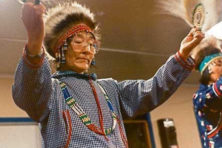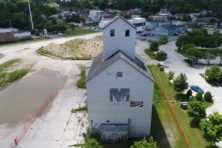Healing Within the Door
- Share
- Tweet
- Pin
- Share
“Healing within” is a term that is used quite often in the psychological field. How do these two words affect you as an individual, your family and your community?
Door County is filled with caring people; people who actively support those in need. Yet, just like any community there is definitely more healing to take place. Consider the passive bystander, they distance themselves from those who suffer, or the ideological movements of people caught up in reaching a specific goal that end up dehumanizing a group of people. Both extremes become increasingly unconcerned about the welfare of other people.
In general our society to this day still devalues certain groups of people. Calling groups “those …” Giving the tone of speech that refers to a group of lesser value or worth. People are not likely to care about “the other” if they do not care about the people who are close to them; starting with valuing their own worth, the family, and people in the community.
A society that helps fulfill fundamental human needs creates the foundation of respect for human rights. The basic physical and psychological needs that are universal for every human being are especially important for each individual within the community. Required among these needs for well being are: security, a positive identity, a feeling of effectiveness and control over important events, positive connection to other people, reasonable autonomy, and an understanding of the world and the purpose of one’s self within the world.
So who are the wounded and how can they heal? People who have been victims of any type of physical, emotional, sexual, or verbal abuse are usually deeply wounded. Offenders tend to shield themselves from feelings of empathy and guilt, often by continuing to devalue their victims. Many of the offenders are people who have themselves been victims and have never healed. Healing requires people to face up to their painful experiences, under supportive conditions. Supportive conditions are vital.
According to a field study that was done after the Rwanda genocide “healing, reconciliation, and prevention from new violence can be obtained by promoting inclusive caring within the community, reading about others experiences, and talking about their experience, while receiving empathetic, loving support. However, talking about such painful events must not be forced. It must take place under the control of the person concerned, at his or her own pace.”* And once again must be done under supportive conditions.
Gaining an understanding of the roots of violence seems to contribute to both healing and reconciliation. Not all abusive situations can have reunion within reconciliation but most can have some degree of resolution. “It seems to make survivors feel more human as they come to see the great violence perpetrated against them not as an incomprehensible evil, but as the outcome of understandable human processes.”* And if we know how this happens, we can take action to prevent it. Such understanding can be important for everyone.
*E. Staub, “Preventing Violence and Generating Humane Values: Healing and Reconciliation in Rwanda,” IRRC, Vol. 85 N852, December 2003.
This article is brought to you in part by the Door County Coordinated Community Response (CCR) to Domestic Violence and Sexual Assault Teams.




